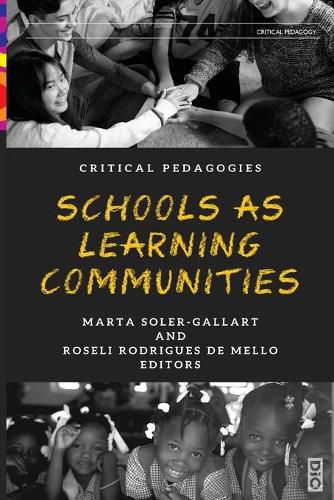Readings Newsletter
Become a Readings Member to make your shopping experience even easier.
Sign in or sign up for free!
You’re not far away from qualifying for FREE standard shipping within Australia
You’ve qualified for FREE standard shipping within Australia
The cart is loading…






This title is printed to order. This book may have been self-published. If so, we cannot guarantee the quality of the content. In the main most books will have gone through the editing process however some may not. We therefore suggest that you be aware of this before ordering this book. If in doubt check either the author or publisher’s details as we are unable to accept any returns unless they are faulty. Please contact us if you have any questions.
How can schools in deprived neighbourhoods with 90% migrant or minority population achieve the same academic results as elite schools? How can the most pressing problems in education, such as school failure and early school-leaving, be overcome, and what can be learnt from schools that are already achieving it?
This book presents the main pillars and contributions of Schools as Learning Communities, an international network of schools that is demonstrating that it is possible to provide excellent education for all children that allows them to achieve success regardless of their socioeconomic, ethnic, geographic or minority background, reversing the reproduction of social and educational inequalities.
A scientific basis and a participative model of school are two cornerstones of this approach to education that has already expanded across countries and continents and across educational levels from early childhood education to adult education. Schools as Learning Communities engage the entire educational community, including not only teachers, students, family and community members, but also policy-makers, public administrators, researchers and economic actors to implement Successful Educational Actions that are based on scientific evidence of the most fundamental theoretical contributions in education as well as on the most recent research findings.
Due to its transformative approach, this book is addressed to all the people who consider education a resource for overcoming social injustices, from teachers and educators to family members, policy-makers and researchers, and it can be particularly useful as a bibliographic source in courses on education, sociology of education, social and educational policy, and educational research.
$9.00 standard shipping within Australia
FREE standard shipping within Australia for orders over $100.00
Express & International shipping calculated at checkout
This title is printed to order. This book may have been self-published. If so, we cannot guarantee the quality of the content. In the main most books will have gone through the editing process however some may not. We therefore suggest that you be aware of this before ordering this book. If in doubt check either the author or publisher’s details as we are unable to accept any returns unless they are faulty. Please contact us if you have any questions.
How can schools in deprived neighbourhoods with 90% migrant or minority population achieve the same academic results as elite schools? How can the most pressing problems in education, such as school failure and early school-leaving, be overcome, and what can be learnt from schools that are already achieving it?
This book presents the main pillars and contributions of Schools as Learning Communities, an international network of schools that is demonstrating that it is possible to provide excellent education for all children that allows them to achieve success regardless of their socioeconomic, ethnic, geographic or minority background, reversing the reproduction of social and educational inequalities.
A scientific basis and a participative model of school are two cornerstones of this approach to education that has already expanded across countries and continents and across educational levels from early childhood education to adult education. Schools as Learning Communities engage the entire educational community, including not only teachers, students, family and community members, but also policy-makers, public administrators, researchers and economic actors to implement Successful Educational Actions that are based on scientific evidence of the most fundamental theoretical contributions in education as well as on the most recent research findings.
Due to its transformative approach, this book is addressed to all the people who consider education a resource for overcoming social injustices, from teachers and educators to family members, policy-makers and researchers, and it can be particularly useful as a bibliographic source in courses on education, sociology of education, social and educational policy, and educational research.